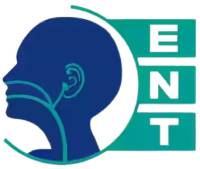PHARYNGITIS
Understanding Pharyngitis (Sore Throat) with Dr. Nilopher Qureshi, Bhopal's Top ENT Specialist
Pharyngitis, commonly known as a sore throat, is a condition characterized by inflammation of the pharynx—the part of the throat behind the mouth and nasal cavity. It can lead to discomfort, pain, and difficulty swallowing, impacting daily activities. This prevalent ailment can be triggered by various factors, including viral infections and environmental irritants. Effective management and relief are essential for individuals experiencing pharyngitis. In Bhopal, Dr. Nilopher Qureshi, renowned as the leading ENT specialist in Bhopal, offers invaluable insights into this condition, providing expert diagnosis and treatment tailored to each patient’s needs.

Pharyngitis, commonly known as a sore throat, is a condition that affects the back of the throat, resulting in discomfort, pain, and difficulty swallowing. It can be caused by various factors, ranging from viral infections to environmental irritants. Understanding pharyngitis and its treatment options is crucial for effective management and relief. In Bhopal, Dr. Nilopher Qureshi stands out as the best ENT specialist for pharyngitis treatment in Bhopal. With her expertise and compassionate care, Dr. Qureshi ensures that patients receive personalized treatment plans to alleviate symptoms and promote healing, offering hope and comfort to those struggling with this common ailment.
Causes of Pharyngitis:
- Viral Infections: The majority of sore throats are caused by viral infections, such as the common cold or flu.
- Bacterial Infections: Streptococcal bacteria, specifically Group A Streptococcus, can also cause pharyngitis, known as strep throat.
- Allergies: Allergies to pollen, dust, or pet dander can lead to throat irritation and inflammation.
- Environmental Factors: Exposure to dry air, smoke, or pollutants can contribute to throat discomfort.
Dysphagia can stem from various causes, including
- Neurological disorders (e.g., stroke, Parkinson’s disease)
- Structural abnormalities (e.g., esophageal strictures, tumors)
- Gastroesophageal reflux disease (GERD)
- Muscle weakness (e.g., muscular dystrophy, myasthenia gravis)
- Aging-related changes
- Trauma or injury
- Radiation therapy
- Certain medications
- Psychological factors (e.g., anxiety)
Diagnosis and Treatment
Diagnosing dysphagia typically involves a thorough evaluation by a healthcare professional, including a physical examination and diagnostic tests such as a barium swallow or endoscopy.
Swallowing Therapy
Working with a speech therapist or swallowing specialist to learn techniques and exercises to improve swallowing function.
Dietary Modifications
Adjusting the texture or consistency of foods and liquids to make swallowing easier and safer.
Positioning Techniques
Changing body position while eating or drinking to facilitate swallowing and reduce the risk of aspiration.
Medications
Treating underlying conditions that contribute to dysphagia, such as acid reflux or neurological disorders.
Surgical Interventions
In some cases, surgical procedures may be recommended to address structural abnormalities or blockages in the throat or esophagus.
Frequently Asked Questions about Dysphagia
Dysphagia is a medical condition characterized by difficulty swallowing food, liquids, or saliva.
Common causes of dysphagia include neurological disorders, structural abnormalities in the throat or esophagus, gastroesophageal reflux disease (GERD), muscle weakness, aging-related changes, trauma or injury, radiation therapy, certain medications, and psychological factors.
You should see a doctor if you experience persistent difficulty swallowing, have pain or discomfort while swallowing, have trouble breathing or swallowing saliva, or notice unintended weight loss associated with dysphagia.
The treatment and management of dysphagia depend on the underlying cause. While some cases of dysphagia may be alleviated with therapy or treatment, others may require ongoing management to improve symptoms and quality of life.
Yes, dysphagia can lead to complications such as malnutrition, dehydration, aspiration pneumonia (lung infection caused by inhaling food or liquid into the lungs), and social isolation due to difficulty eating in social settings.
Individuals suffering from dysphagia might benefit from the assistance of Dr. Nilopher Qureshi, an ENT expert in Bhopal, who can give individualized evaluation and treatment choices.
